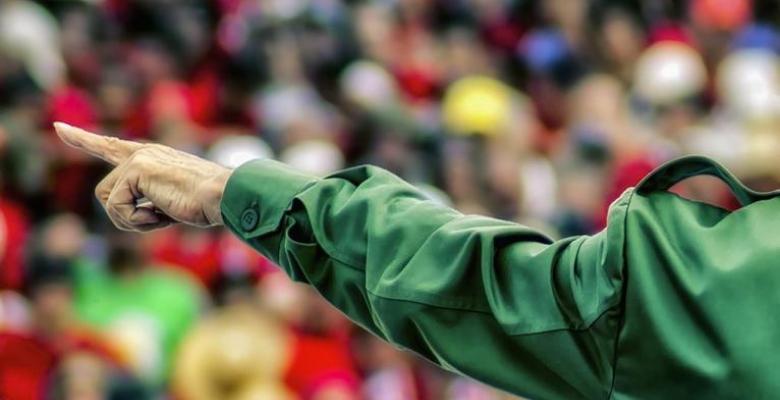Fidel's Example
especiales

Fidel Castro's political and humanistic capital remains, in the current Cuban context, an indispensable compass. Forged through action and thought, this legacy is nourished by a life dedicated to interpreting and transforming reality. Fidel was heir to a long tradition of struggle and rebellion, and he knew how to embody the nation's deepest aspirations, synthesizing history and projecting it into the future. It’s not just about remembering his exploits, but understanding them as living tools to face current challenges.
In his own words and actions, Fidel defined himself as a disciple and scholar of José Martí, whom he recognized as the intellectual author of the Moncada Barracks assault and the moral guide of the Cuban Revolution. By affirming that the Revolution is one, from Céspedes to the present, he cemented the notion of historical continuity as an essential pillar of the revolutionary process. This vision, which links the emancipatory struggles of the past with current battles, remains essential to avoid artificial ruptures and sustain a coherent and deeply rooted national project.
His leadership was not built from a distance, but rather through example and direct involvement in the problems and aspirations of the people. Fidel never avoided contact with the people, convinced that the legitimacy of political leadership was defined in this connection. Listening, debating, convincing, and mobilizing were constant practices in his leadership. This exercise, cemented in mutual trust, establishes a relevant lesson for the generations who today assume responsibilities in leading the country.
On the international stage, Fidel achieved universal stature. No other Latin American political figure of the 20th century had such a reach or so consistently assumed the defense of a socialist project, just a few miles from the United States. He faced pressure, aggression, and blockades with fortitude, ethical sense, and historical responsibility, demonstrating that national sovereignty and dignity are non-negotiable. His legacy is also a school of creative resistance in the face of adversity.
As a statesman, he tirelessly defended the rights of the Third World peoples and denounced the historical injustices that plagued them. He was a firm believer in Latin American integration and solidarity with the oppressed everywhere. His voice was raised in international forums to demand a more just order, a world where equity, cooperation, and peace were guiding principles. This internationalist vision remains a benchmark on a planet marked by inequalities and conflicts.
His ability to lead processes in critical circumstances, his empathy, and his strategic mastery proved key to finding solutions and alternatives even in the most difficult times. Fidel contributed not only perseverance, but also the audacity and innovative thinking that prevented the collapse of the national project in extremely complex situations. The clarity and validity of his concept of Revolution—to change everything that must be changed, to act with a sense of the historical moment—are more necessary today than ever.
The humanism that permeated his work and thought led him to commit to global causes such as the fight against climate change, the defense of peace, and the right to development. He was a convinced internationalist, capable of mobilizing resources and willpower to confront epidemics, disasters, and the needs of distant peoples, convinced that a better world was not only possible, but essential. This humanism, which transcended borders, must continue to inspire the external and internal projection of the Cuban nation.
In today's Cuba, marked by economic tensions, political challenges, and social transformations, Fidel Castro's ideas and actions cannot be reduced to historical relics. His thinking is a dialectical conceptual platform, open to analysis and updating, offering keys for action in the present. Continuing to study, interpret, and apply his teachings is a prerequisite for sustaining sovereignty, social justice, and national dignity. In memory and practice, Fidel remains a guiding beacon.
Translated by Amilkal Labañino / CubaSí Translation Staff













Add new comment